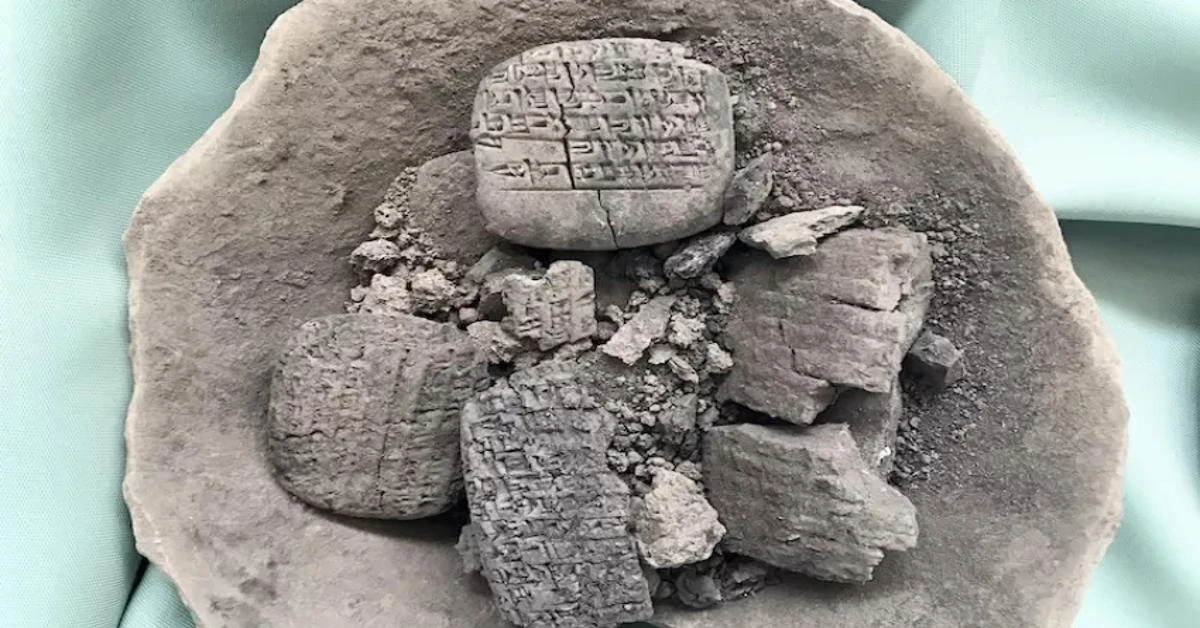First known company in Anatolia discovered at a 4,000-year-old trade hub in Türkiye

Archaeological excavations at Kultepe, near Kayseri in central Türkiye, have uncovered significant historical insights, including the establishment of the first known company in Anatolia.
This company was founded approximately 4,000 years ago and was initiated by 12 individuals who collectively invested 15 kilograms of gold.
Kultepe was a hub of ancient commerce in Anatolia
Kultepe, also known as Kanesh or Nesha, was an essential hub of commercial activity during the Middle Bronze Age. It served as one of the main trade centers of the Assyrian trade colonies, known as karums.
These karums were significant trade posts established by Assyrian merchants, facilitating extensive commercial networks across the region. Excavations at Kultepe have continued for over seven decades, yielding more than 20,000 cuneiform tablets that offer detailed insights into the commercial and social activities of the period.
Insights from the excavations in Kultepe, Türkiye

Professor Dr. Fikri Kulakoglu, the head of excavations at Kultepe, stated that most of the tablets found at the site relate to commerce. These records include a range of financial transactions, from caravan expenditures to detailed debt and credit relations. He emphasized, “Kultepe was a very active and large trade center at that time.”
One particularly noteworthy tablet reveals the formation of a company by 12 partners, each contributing different amounts of gold. The company’s capital, amounting to 15 kilograms of gold, was managed by a merchant named Amur Ishtar.
According to the tablet, the business operated with a unique profit-sharing model. One-third of the profits were retained, while another third was distributed among the partners. The remaining profits were likely reinvested or used for other business purposes.
Records of a unique financial structure

An interesting aspect of the company’s financial structure was its long-term capital retention policy. Kulakoglu explained, “If you want to withdraw your share in the company’s capital before its maturity, you will be given about 4 kilos of silver instead of 1 kilo of gold. If you withdraw your capital before maturity, you will incur a loss. In other words, the capital is guaranteed to remain in place for as long as 12 years.”
The significance of these findings is further highlighted by the fact that these tablets date back to a time shortly after writing was introduced to Anatolia. Kulakoglu noted, “The tablets found here date to the period after the 1950s B.C. This is the period when writing first started in Anatolia. Naturally, it is the first declaration of the first company in Anatolia, in a sense, a company deed.”
Broader social insights about Kultepe found in the tablets

Beyond commercial records, the tablets also provide a wealth of information about the social dynamics of the period. They include details on marriage contracts, divorce proceedings, inheritance issues, and notarial acts. This diverse array of documents makes Kultepe a vital source for understanding both the economic and social life of ancient Anatolia.
The findings at Kultepe are remarkable for their historical value and their contribution to our understanding of early commercial practices and societal organization. These ancient records, now part of the UNESCO Memory of the World Register, continue to offer invaluable insights into the early complexities of human civilization and commerce.
For more information on this significant discovery, the tablets and other artifacts from Kultepe can be viewed at the Kayseri Archaeology Museum, where they continue to draw the interest of scholars and visitors alike.



